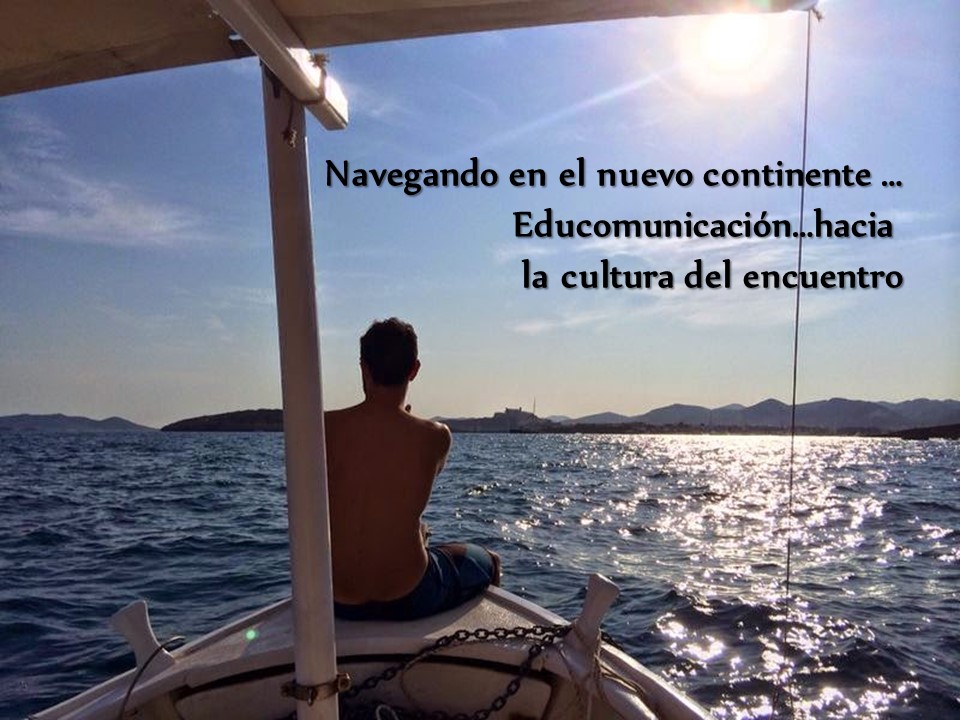Epistemological reflection / Navigating in the new continent education-communication: Educommunication towards the culture of the encounter.
General purpose:
- Delve into the epistemological roots of the emerging paradigm of educommunication as a field of social intervention, autonomous, inclusive, socializing principles to ensure collaborative reflection, enriching the argument for social dialogue that the document generates.
Specific objectives:
- Reflect and synthesize the scope of the doctoral thesis in informative language.
- Promote reflection of the epistemological theoretical foundations on which educommunication is sustained.
- Present a didactic approach that allows reflection and praxis on the subject.
- To favor the formation of educommunicating agents in the diversity of communicational, educational and evangelizing fields.
- Share educommunicative experience that provokes following the socialization of the paradigm.
Latin America has more than five decades of educommunicative experience with thinkers, researchers and creators of experiences that yesterday and today promote the integrality of the experience but that nevertheless suffers from a notorious fragility of systematization and scientific consistency that presents itself as an obstacle to validation of the paradigm worldwide.
The American continent has an admirable richness as it is the cradle of a contemporary paradigm that dialogues with other currents, but that requires deepening and scientific discipline to ensure its sustainability and permanence over time.
Educommunication emerges in the scientific field as a new methodological theory, which will benefit the training of social partners who interact with the environment, and favor the development of dynamic, open and democratic communication ecosystems. It is possible to outline some possible paths to be adapted in the multiplicity of contexts and settings, as well as in the cultural diversity in which our Latin American peoples find themselves and in which they effectively operate as citizens capable of acting in their own environment, learning, generating and building interactive and transversal processes of culture, from the dialogical nature of communication as a methodology for learning, social coexistence and assertive leadership.
Educommunication's strength lies in interconnectivity, consistency of procedures, monitoring of communication processes, social skills and the common purpose of struggles for freedom of expression, dialogue, listening, consensus and citizenship.
The research is the fruit of 9 years of study, reflection and practical experience that combine in long spaces of deepening and rapprochement of the thinkers of educommunication in the continent, CELAM assumes the commitment to turn part of the doctoral thesis “the theory of educommunication in the praxis of the educational mission of the Daughters of Mary Help of Christians ”.
This first installment is organized into 6 chapters that cover the history of educommunication, epistemological principles, didactic notions, communicative processes and experience in action.
- Awareness to continue investigating and enriching the epistemology of the emerging paradigm.
- Motivation to develop diverse training experience on the continent.
- Projects that favor the approach to the paradigm and instruments to put it into practice.
- Workshops, courses, diplomas that ensure growth in educommunicational thinking.
- Convergence of the diversity of thoughts in a social discipline under construction.




